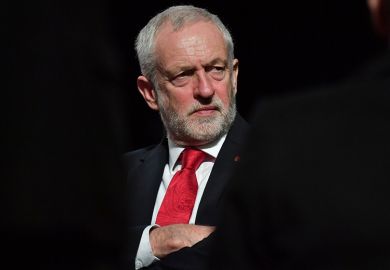Labour’s strong support from students was at the heart of some stunning gains in the election, which have deprived the Conservatives of a majority. And the party’s policy to abolish tuition fees and reintroduce student maintenance grants appears to have been a major factor in gaining that support.
Voters in student-heavy seats helped Labour massively increase their majorities in what were extremely tight marginals (such as Chester and Cambridge), make some surprise gains such as Derby North and some total shock wins such as Canterbury, held by the Tories since 1918.
We know from YouGov polling that the public found scrapping fees to be the most memorable policy in the Labour manifesto. And we know it was popular: overall 49 per cent said it was a good idea, 36 per cent said it was the wrong priority and 15 per cent didn’t know (that made it the third most popular of the Labour policies YouGov tested with the public). There was particularly strong support for the policy among 18-24 year olds, of whom 58 per cent thought it a good idea.
Before the election, Times Higher Education compiled data on the “student impact” score for each constituency, pinpointing which universities could have the biggest influence on results in terms of the votes of their students.
The theory was that students – who can choose to vote in either their home or university constituency – could save Labour in a number of seats where it was thought to be defending Tory challenges. But in reality, student voters have been a potent offensive weapon against the Tories.
The University of Derby came top on student impact – not only did Labour easily keep hold of Derby South, but it overcame a small Tory majority in Derby North.
The University of Brighton was third highest on student impact – Labour gained Brighton Kemptown. Plymouth University was fifth highest – Labour gained Plymouth Sutton and Devonport.
Also in the top 10 were the universities of Cambridge, Chester, Edinburgh and Lancaster – Labour had big increases in majorities in what seemed like tight marginals in all cases. In Cambridge, a 2015 majority of about 600 over the Lib Dems was turned into one of nearly 13,000.
There are, of course, big reasons other than tuition fees why young voters might turn out for Labour: liking its promises to cap rent increases, to end zero-hour contracts or wanting to avert a hard Brexit under Theresa May. But given that the pledge to end fees was judged the most memorable by the public, it has to be regarded as a major factor.
There are various estimates of youth turnout flying around. What is certain is that there were huge increases in voter registration in some of the key student-heavy “university seats”.
In Canterbury, the number of registered voters rose by 10 per cent from 2015. In the massively student-heavy Leeds North West, Labour made a gain from the Lib Dems after the seat saw the largest increase in registered voters of any in the country, up 16 per cent since December 2016.
At about 2am last night, as it became clear that the Conservatives would lose their majority, George Osborne continued to use his role as ITV pundit to twist the knife on the prime minister who sacked him. What we were seeing was, he said, “the revenge of the young” who had turned out to beat Tory MPs “in university seats, places like that”.
He was soon followed by vocal Conservative supporter Toby Young, who said that “one of the clear successes of the campaign” was Labour’s pledge to abolish tuition fees, which had “clearly brought young people out to vote”.
Labour does not seem likely to form a government, in which case the fees pledge will not become reality. But it was a clear, memorable, popular manifesto commitment (so much more successful than the 2015 pledge to lower fees to £6,000). And by bringing out young voters in some key seats, the pledge helped deprive the Conservatives of a majority.
Political success like that guarantees that scrapping tuition fees will remain as Labour’s policy for the forseeable future.
The £9,000 fees system is normally viewed as a success in terms of student recruitment trends and as a political problem defused after the student protests of 2010. Nick Clegg, whose Lib Dems took all the political fire at that time, was defeated by Labour in Sheffield Hallam last night. But, on a slow fuse, the trebling of fees may also just have blown up in the Conservatives’ faces.
Register to continue
Why register?
- Registration is free and only takes a moment
- Once registered, you can read 3 articles a month
- Sign up for our newsletter
Subscribe
Or subscribe for unlimited access to:
- Unlimited access to news, views, insights & reviews
- Digital editions
- Digital access to THE’s university and college rankings analysis
Already registered or a current subscriber?

